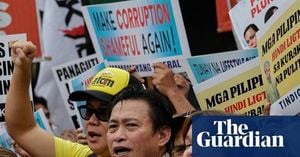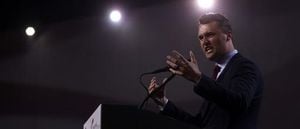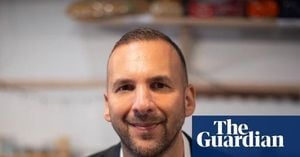After nearly four years at the helm, Pat Gelsinger has unexpectedly stepped down as CEO of Intel, marking the end of his challenging tenure marked by ambitious goals and significant setbacks. Intel announced Gelsinger's retirement via press release, stating the company's board of directors had formed a search committee to find his replacement. This change arrives at a pivotal moment for the semiconductor giant, which has been grappling with revenue declines, fierce competition, and massive layoffs.
Intel's leadership shakeup began last week when rumors circulated about tensions within the board. Bloomberg reported unnamed sources claiming directors grew increasingly frustrated with Gelsinger due to his sluggish pace at addressing the company’s pressing challenges. Before Gelsinger's resignation was made public, it is said the board presented him with two choices: resign or face termination.
Reflecting on his tenure, Gelsinger acknowledged the bittersweet nature of his departure, stating, "Today is, of course, bittersweet as this company has been my life for the bulk of my working career." Despite making progress, Gelsinger’s vision of restoring Intel to its former glory proved elusive. Under his leadership, Intel's market share eroded significantly, driven partly by the shift toward AI technologies where competitors like Nvidia surged.
Gelsinger's legacy at Intel began nearly 40 years ago when he joined the company at just 18. Throughout his career, he held various key positions, including the role of CTO. His return to Intel as CEO was met with high expectations; he promised to reposition the chipmaker as a leading force within the semiconductor industry. Yet, Intel’s direction shifted under his watch, often overshadowed by rival companies such as Advanced Micro Devices (AMD) and Taiwan Semiconductor Manufacturing Company (TSMC).
One of Gelsinger’s most significant initiatives was to implement changes to Intel’s chip design and manufacturing processes. He advanced strategies aimed at separating these functions to boost competitiveness—an ambitious goal. Nevertheless, the reality was stark; during his tenure, Intel's share price plummeted, with the company losing more than half its value. Revenue from PC chips dropped by around 25% at the start of 2022, with the data center segment also suffering losses.
For Gelsinger, major challenges stemmed from Intel's inability to capitalize on the booming AI market. Analysts criticized the company's slow reaction to the burgeoning demand for AI-enhanced technology, focusing instead on traditional chip manufacturing avenues. While Nvidia embraced AI trends well before others, Intel struggled to catch up and lost substantial market share, especially as Apple transitioned away from Intel chips.
After years of strategic restructuring, the financial results during Gelsinger's leadership were disappointing. Intel faced its largest loss ever of $10 billion in the second quarter of 2024. The company significantly downsized, shedding 15% of its workforce—approximately 16,500 employees. This included reductions within its Oregon operations, reflecting broader struggles as executives acknowledged the need for drastic changes.
The board of directors expressed gratitude for Gelsinger's service but also highlighted the work still needed to restore investor confidence. There are now expectations for co-CEOs David Zinsner, Intel's CFO, and Michelle Johnston “MJ” Holthaus, who oversees the company's PC business, to lead the company through this turbulent transitional period until a permanent replacement is found.
Industry analysts speculate about the future of Intel as the company grapples with its identity and restructuring plans. Gelsinger's departure might open doors to unraveling its tightly knit divisions, possibly separating product development from manufacturing, allowing for more focused operations. Some even suggest Intel could look to sell off parts of its manufacturing segment or seek mergers and acquisitions to regain competitive footing.
Despite the challenges faced, Gelsinger's commitment to building and modernizing factories remains visible. He spearheaded plans for $7.9 billion in subsidies from the 2022 CHIPS Act, targeted at enhancing manufacturing capabilities across Oregon, Arizona, and Ohio. While these investments signal possible long-term growth, immediate hurdles are ever-present as Intel works to navigate the rapidly changing technology environment.
With Gelsinger now gone, Intel stands at both a crossroads and a potential dawn of new opportunities. The board faces the dual task of not only rectifying the operational missteps but also selecting new leadership capable of adapting swiftly to the fast-paced demands of the technology sector. The next CEO will inherit the monumental task of reinforcing Intel’s position among the industry's giants, amid fierce competition and shifting market dynamics.
Moving forward, eyes will be trained on the challenge of filling Gelsinger's shoes and the strategic decisions made to restore Intel's prestige. It’s not just about turning the company around; it’s about transitioning to meet the future of technology with innovation and resilience, clearly defined leadership, and perhaps, some willingness to redefine itself.



